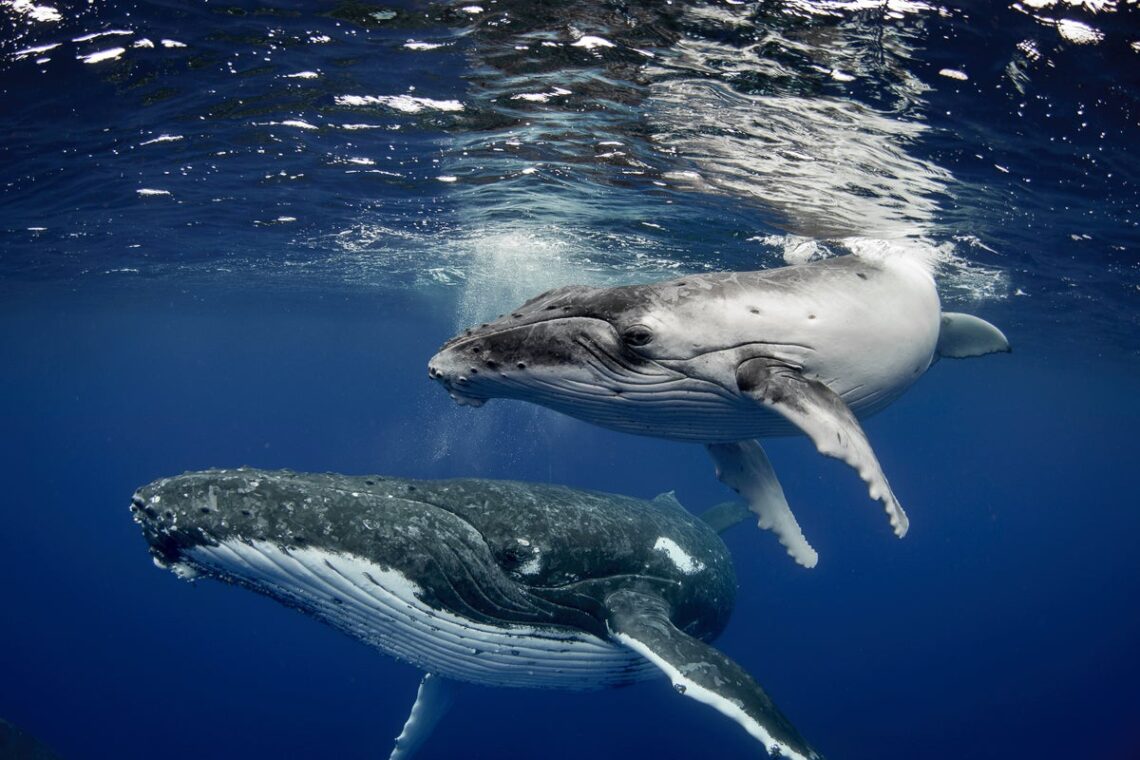For all the world’s linguistic diversity, human languages still obey some universal patterns. These run even deeper than grammar and syntax; they’re rooted in statistical laws that predict how frequently we use certain words and how long those words tend to be. Think of them as built-in guardrails to keep language easy to learn and use.
And now scientists have found some of the same patterns in whale vocalizations. Two new studies published this week show that, despite the vast evolutionary distance between us, humans and whales have converged on similar solutions to the problem of communicating through sound. “It strengthens the view that we should be thinking about human language not as a completely different phenomenon from other communication systems but instead think about what it shares with them,” says Inbal Arnon, a professor of psychology at the Hebrew University of Jerusalem and a co-author of one of the studies.
Arnon and her colleagues, whose paper was published on Thursday in Science, analyzed eight years of humpback whale song recordings from New Caledonia in the South Pacific—and found that they closely adhered to a principle called Zipf’s law of frequency. This mathematical-power law, a hallmark of human language, is observed in word-use frequencies: the most common word in any language shows up twice as often as the second most common, three times as often as the third most common, and so on.
On supporting science journalism
If you’re enjoying this article, consider supporting our award-winning journalism by subscribing. By purchasing a subscription you are helping to ensure the future of impactful stories about the discoveries and ideas shaping our world today.
Listen to the humpback whale songs:
But before they could analyze the recordings, the researchers had to identify the segments that were analogous to words (though, importantly, without semantic meaning) in a stream of otherworldly grunts, shrieks and moans. They found themselves…
Read the full article here

